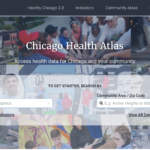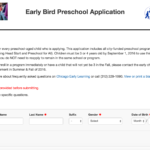 Today our product, Foodborne Chicago, was recognized by the Ash Center for Democratic Governance and Innovation. Here’s their writeup:
Today our product, Foodborne Chicago, was recognized by the Ash Center for Democratic Governance and Innovation. Here’s their writeup:
FoodBorne Chicago
City of Chicago, ILOn March 23, 2013, the Chicago Department of Public Health and the SmartChicago Collaborative launched the FoodBorne Chicago web application with the goal of improving food safety in Chicago. FoodBorne Chicago tracks tweets using a supervised machine-learning algorithm that identifies the keywords of “food poison” within the Chicago area. This tool allows residents to report a food poisoning incident through 311 after the program identifies tweets with possible cases of food poisoning. The team then tweets back a link to submit an online web form where residents can identify where they ate, the date and time they frequented the restaurant, their symptoms, and send it through Open311. The information is sent directly to the Department of Public Health and, if warranted, an inspection team visits the restaurant in question and then lets the resident know the status of the investigation via e-mail. The algorithm gets smarter at identifying related tweets as the team replies to residents that are suspected to have a potential case of food poisoning to report. If several complaints occur together, these clusters can be investigated to prevent further illnesses from developing.
And here’s a snip from a press release from Mayor Rahm Emanuel:
The Chicago Department of Public Health (CDPH) has been recognized as a Top 25 program in this year’s Innovations in American Government Awards competition by the Ash Center for Democratic Governance and Innovation at the John F. Kennedy School of Government, Harvard University for its FoodBorne Chicago program.
Two years ago, CDPH and the SmartChicago Collaborative launched the FoodBorne Chicago web application with the goal of improving food safety in Chicago.
“The Department of Public Health and the Department of Innovation and Technology used social media and technology to create a tool that makes food consumption in Chicago safer,” said Mayor Rahm Emanuel. “It is innovative thinking like this that enhances and leverages available resources to make the most impact.”






